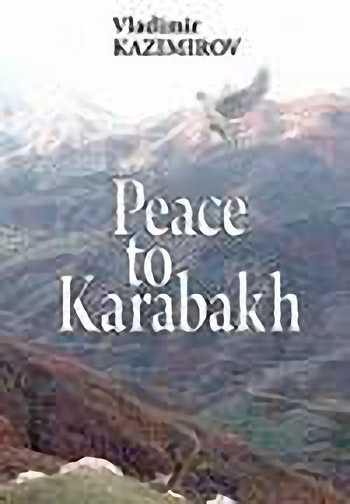Международная безопасность
Онлайн библиотека книг, статей, докладов, документов
Brothers Armed: Military Aspects of the Crisis in Ukraine is the latest book from the Centre for Analysis of Strategies and Technologies, a Moscow-based think tank focused on military and security issues. Presenting a collection of essays by leading Russian and Ukrainian military, security and political analysts, Brothers Armed charts the history of military reform and progress in Ukraine and Russia from the collapse of the Soviet Union to the 2014 annexation of Crimea.
The ICRC is pleased to present its 2014 Emergency Appeals, which describe the situations faced by people affected by armed conflicts and other situations of violence, the primary objectives of the ICRC’s field delegations and missions in some 80 countries around the world and the corresponding budgetary requirements. The Emergency Appeals set out the needs as identified at the time of writing in late October 2013.
In a year of renewed interest in the OSCE, the 20th edition of the OSCE Yearbook contains analyses, descriptions and reports by experts, insiders and decision-makers on the world's largest regional security organization, its work and participating States. A special focus section considers the Helsinki +40 Process against the background of the crisis in Ukraine. Highlights include former Russian Foreign Minister Igor Ivanov on the OSCE's ongoing relevance, and OSCE Secretary General Lamberto Zannier on the Organization as a regional arrangement under the UN Charter. Steven Pifer also discusses recent events in US-Russia relations. The participating States in the spotlight this year are Turkmenistan, newcomer Mongolia, and the UK, in the context of the referendum on Scottish independence. The section on conflict prevention and dispute settlement is largely dedicated to the Ukraine crisis. Here, renowned experts deal with the challenges and opportunities presented by the OSCE's Special Monitoring Mission; analyse the strategic struggle between Russia and Ukraine; consider Russia's motivations; and outline the development of Ukrainian civil society. Other contributions are dedicated to the Nagorno-Karabakh conflict, election observation, conventional arms control against the backdrop of the Ukraine crisis, and the OSCE Mediterranean Partnership four years after the "Arab Spring."
Although some of today's armed conflicts seem unsolvable, the fact is that in the last three decades, four out of five of the armed conflicts have concluded with a peace agreement at a negotiating table, and not with the military victory of one of the parties. Almost half of today's conflicts, however, are still active, and pose a serious challenge to peace diplomacy which seeks to reduce the levels of violence and conduct parties to the path of negotiations. This book, which is based on the observation of a large number of negotiations and on the author's own experience, emphasizes those methodologies that have proven to be most useful in terms of ensuring the smooth running of a peace process, and which may help overcome the numerous crises that may be encountered along the way.
A book focuses on Russia’s efforts to resolve the ethnopolitical conflict in Transcaucasia the hat grown into a real war, especially at the most difficult stage of active and fierce hostilities, right up to the conclusion of a ceasefire agreement, in effect since 12 May 1994. The author, Vladimir Kazimirov, who was the head of Russia’s mediatory mission, Plenipotentiary Representative of the Russian President for Political Settlement of the Conflict over Nagorno-Karabakh (1992-1996), reveals the content of the mediator’s very complicated work with the conflicting parties, full of all kinds of vicissitudes, offering characterisations of the participants in that process and an assessment of their positions.
Материалы международной научной конференции «К дорожной карте мира и развития в Северо-восточной Азии: от конфликта к диалогу на Корейском полуострове», которая состоялась 30 мая 2014 г. во Владивостоке. В конференции, организованной Федерацией за всеобщий мир (Universal Peace Federation), Институтом истории, археологии и этнографии ДВО РАН и ИДВ РАН, приняли участие более 100 экспертов из России, США, Республики Корея, Китая и Японии для обсуждения вопросов безопасности и сотрудничества в Северо-Восточной Азии и ситуации на Корейском полуострове. Конференция прошла в рамках «Мирной инициативы в Северо-Восточной Азии». В ходе этой инициативы за последние годы состоялся ряд конференций по миру и безопасности в Северо-Восточной Азии в Вашингтоне, Токио, Сеуле и Москве.
War and Nationalism presents thorough up-to-date scholarship on the often misunderstood and neglected Balkan Wars of 1912 to 1913, which contributed to the outbreak of World War I. The essays contain critical inquiries into the perse and interconnected processes of social, economic, and political exchange that escalated into conflict. The wars represented a pivotal moment that had a long-lasting impact on the regional state system and fundamentally transformed the beleaguered Ottoman Empire in the process. This interdisciplinary volume stands as a critique of the standard discourse regarding the Balkan Wars and effectively questions many of the assumptions of prevailing modern nation-state histories, which have long privileged the ethno-religious dimensions present in the Balkans. The authors go to great lengths in demonstrating the fluidity of social, geographical, and cultural boundaries before 1912 and call into question the “nationalist watershed” notion that was artificially imposed by manipulative historiography and political machinations following the end of fighting in 1913.
В статье дан анализ трёх групп последствий: международно-правовых, военно-стратегических и геополитических. Особенное внимание уделяется легитимации "гуманитарных интервенций"
В книге рассказывается о сложных коллизиях международной политики, возникших вокруг борьбы за установление контроля над стратегически важным сирийским городом Алеппо во второй половине 2016 года. Речь идёт о попытках решить «алеппскую проблему» путём консультаций между Россией и США и о причинах, по которым это сделать не удалось. Автор также уделяет внимание усилиям по урегулированию «алеппского вопроса» в рамках так называемой «узкой группы» заинтересованных государств (Россия, США, Иран, Катар, Саудовская Аравия, Турция).
Участники встречи, проведенной 4-5 мая 1994 года в городе Бишкеке по инициативе Межпарламентской Ассамблеи СНГ, парламента Кыргызской Республики, Федерального Собрания и Министерства иностранных дел Российской Федерации…








